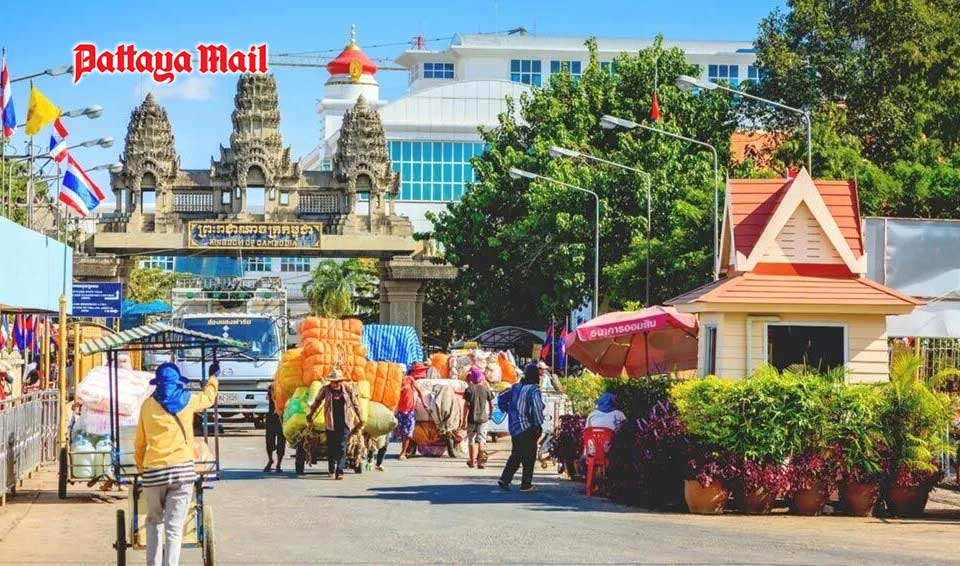
Some foreigners hoping for same-day border hops to Cambodia or Malaysia or Laos to renew permission to stay in Thailand may have to pay extra to avoid inconvenience. Those who turn up unescorted at Thai exit points are being told that they must spend one or two nights in the neighboring country before being allowed back into Thailand. However, those who are passengers in a minibus, organized by a tour operator, are still allowed same-day excursions there and back.
The requirement to pay for one or two nights’ hotel accommodation is justified by immigration officers as necessary to process the passports of unescorted border hoppers. By contrast, those who are part of an organized tour have to submit their passport copy to the operator at least one day in advance for security clearance. But tour operators have increased their prices for single-day border hops which now average 5,000 – 6,000 baht per individual, or around US$160.
Travel gurus say that tourist border runs will become less necessary in the medium term. This is because the vast majority of tourists, since July 15, now receive 60 days on initial entry rather than the previous 30 or 15. The two months’ visa exemption can then be extended for a further 30 days at local immigration for a fee of 1,900 baht, or US$55. Although there is now no formal limit on the number of repeat entries to Thailand by land, air or sea, few bona fide tourists require longer than three months (60+30 days) visa exempt before returning home.
There are also reports that holders of multiple entry non-immigrant visas, for example those with “O” three months’ family visas which cannot be renewed inside Thailand, are being charged up to 2,000 baht at land borders as an unpublicized service fee. Some of these foreigners are now planning to obtain the new-generation Destination Thailand Visa which, for specified categories, allows a six months’ stay on entry with a further six months at the discretion of Thai immigration.
Pom Prakaew, visa specialist at a Bangkok travel agent, told Pattaya Mail that old-fashioned border runs would likely die out eventually. “There are several alternative routes now which will take time to come into play,” she said, “each with its own pluses and minuses.” She discounted rumours that a new Thai prime minister would change visa direction because “It’s the same set up really”. But she added that the Thai Revenue’s determination to tax some income of some Thais and some foreigners who are resident for at least 180 days in a year was “problematical” unless further clarification was issued centrally. Soon.








